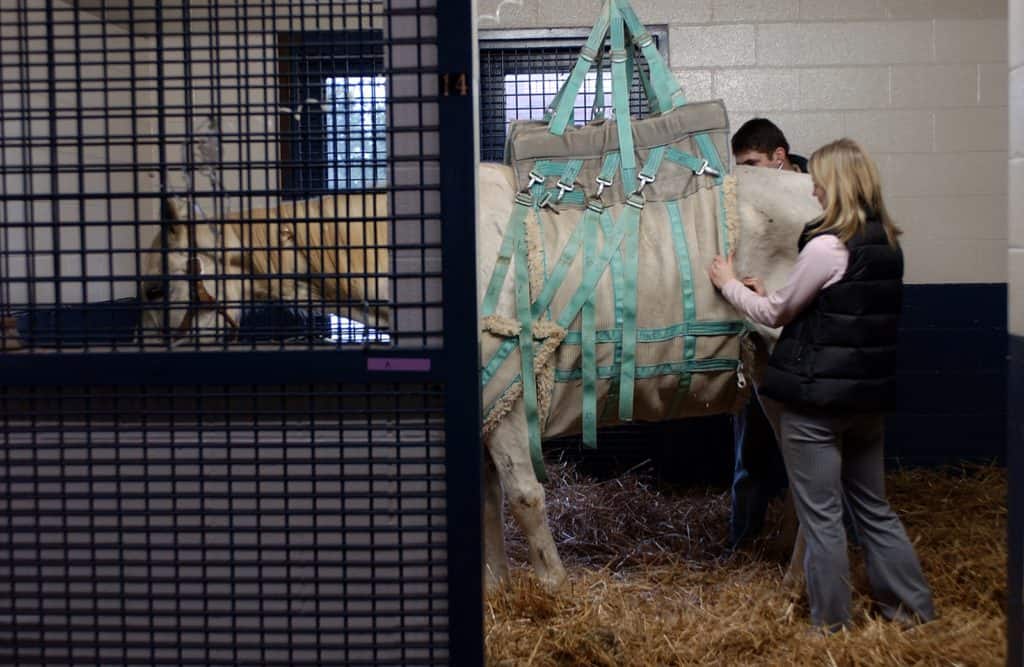

Learn the latest about this puzzling neuromuscular disease.

Top tweets and take-homes from sessions on PSSM, laminitis studies, equine tongue tumors, and more!

They might be less common than limb fractures, but skull, rib, pelvis, and withers fractures are no less important.

Of the 743 respondents, 324 (44%) use cash from their savings or emergency funds to pay for their horses’ health care.

Veterinarians can keep diagnostic costs lower by using as much information from routine tests as possible.

Of the 412 respondents, 193 (47%) said their horses received boosters for equine herpesvirus and influenza this fall.

Surgeons have honed a new approach to correct airway collapse in horses.

Foal nutrition can be complicated, making it important for owners to understand newborns’ nutritional needs.

Researchers are investigating how horse owners view forage and their current forage-feeding routines.

Owners can take several steps to ensure a successful transition from athletic to breeding performance.

Do you have a mature or senior horse? Find out how to keep him comfortable and competitive as he ages!

A look at noninvasive high-tech therapies–from lasers to ceramic-thread blankets–and how they might help horses heal.

In honor of National Veterinary Technician Week, here’s some information about vets’ right-hand men and women.

Microchips could offer benefits beyond identification for your horse.

Being a responsible horse owner involves deciding if and when castration is appropriate.

Behaviorist Dr. Sue McDonnell offers step-by-step advice for helping a horse who’s afraid of getting shots from the vet.
Stay on top of the most recent Horse Health news with
"*" indicates required fields